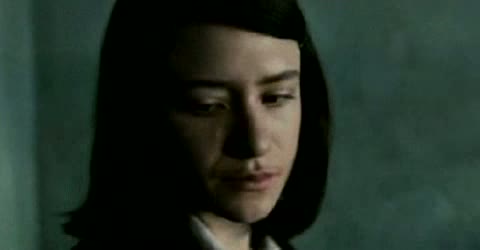Director:
Marc RothemundGuión:
Fred BreinersdorferCámara:
Martin LangerReparto:
Julia Jentsch, Alexander Held, Fabian Hinrichs, Johanna Gastdorf, André Hennicke, Florian Stetter, Maximilian Brückner, Johannes Suhm, Lilli Jung (más)Sinopsis(1)
Múnich, 1943. Durante la devastadora ocupación de Europa por Hitler, un grupo de jóvenes, en su mayoría universitarios, recurre a la resistencia pasiva como única solución para paralizar a los nazis y a su inhumana máquina bélica. Así nace "La Rosa Blanca", un movimiento de resistencia cuyo propósito era la caída del Tercer Reich. Sophie Scholl es la única mujer del grupo, una joven ingenua que no tardará en convertirse en una antinazi convencida e intrépida. El 18 de febrero de 1943 detienen a Sophie y a su hermano mientras distribuyen panfletos en la universidad. Durante los días que siguen al arresto, el duro interrogatorio al que es sometida Sophie por parte de un oficial de la Gestapo, Robert Mohr, no tarda en convertirse en un intenso duelo psicológico. La joven miente y desmiente, maniobra y le reta, parece rendirse antes de atacar de nuevo con renovadas fuerzas, y casi consigue derrotar a su oponente. Por fin, ante unas pruebas aplastantes, Sophie confiesa, aunque hace un último y desesperado intento para proteger a su hermano y a los otros miembros de "La Rosa Blanca". Conmovido por la infrecuente valentía de Sophie, Robert Mohr le ofrece una escapatoria a cambio de traicionar sus ideales. Pero ella rechaza la oferta; su suerte está echada... (Lolafilms)
(más)Reseñas (1)
Sophie Scholl: The Final Days is exactly the type of film that collects stars for its theme and main character. That character is a true resistance fighter executed for anti-Nazi activities. Although I liked the film as a whole, I had and still have a feeling of a certain schematic approach and view of Sophie Scholl. I have no problem with Julia Jentsch's performance, rather with what the script prescribes her. For the overwhelming majority of the film's runtime, her character is simply brave, never stepping out of character, and except for two moments, does not show her emotions, even though she is in a hopeless situation and is facing the worst. She almost always smiles and reacts very quickly to the interrogator's verbal attacks. I read several real stories of resistance fighters and their trials in Nazi prisons, at the Gestapo, in German courts, and later in concentration camps. The Gestapo and the state court in Berlin represented very well-functioning machinery that aimed to break and destroy those being judged. Of course, it was not always necessary to physically torture the interrogated, sometimes they confessed voluntarily. The methods were similar throughout the Reich and physical punishments, threats, and various forms of torture were never far away. For Scholl to dare to give an educational lecture to her interrogator on the advantages of democracy and the sins of Nazi Germany, and later to do the same, albeit on a smaller scale, to the notorious Roland Freisler as the head of the state court, seems highly unlikely to me, although I am not familiar with the details of the trial of The White Rose. However, the People's Court in Berlin was able to break even very tough opponents, among other things, experienced war commanders collapsed under Freisler's roar during the trial of Hitler's assassins or communist resistance fighters accustomed to long years of illegality and hard conspiracy. In short, the film seems a bit too cliché and predictable to me. Overall impression: 65%.
()

